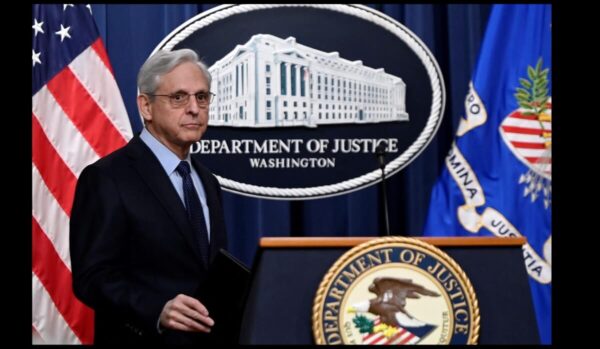The U.S. Department of Justice announced on Thursday, Oct. 19, a milestone in its work to dismantle redlining in Black and brown communities.
Through its “Combating Redlining Initiative,” the DOJ has secured $107 million in relief funds to go back into the communities that have been victimized by discriminatory mortgage practices by banks and other mortgage lending businesses.
The DOJ also announced that it reached a $9 million agreement with Ameris Bank to bring resolution to allegations that the bank “engaged in a pattern or practice of redlining predominately Black and Hispanic neighborhoods in Jacksonville, Florida,” according to a press release from the Department of Justice.

The practice of redlining is illegal.
It’s a process where lenders, because of a person’s race, color, or national origin, will avoid providing credit services to people who live in or seek to live in communities of color.
Trending Today:
- Major Republican Donor Who Called Barack Obama the N-Word Dies After Attempting to Kill His Wife In Murder-Suicide Gone Awry
- California Cop Pummels Black Woman In the Face After She Crashes Car In Shocking Video. He Has a History of Violent Arrests
The U.S. government’s complaint alleged that between 2016 and 2021, Ameris Bank avoided providing mortgage services to predominantly Black and Hispanic neighborhoods in Jacksonville and discouraged credit-seeking individuals in those communities from obtaining home loans.
Records showed that Ameris Bank’s home mortgage lending disproportionately favored white areas in Jacksonville, while other lenders received three times as many applications from majority-Black and Hispanic neighborhoods.
DOJ also pointed out that despite Ameris having 18 branches in Jacksonville, the bank never established a branch in a majority-Black and brown neighborhood in the city.
In light of the evidence presented by the DOJ, the bank has agreed to pay the initiative $9 million, ending the litigation.
“As today’s case makes clear, redlining is not just a relic of the past. That is why, two years ago this month, the Justice Department launched our Combating Redlining Initiative,” said U.S. Attorney General Merrick B. Garland.
He continued, “Once today’s settlement is approved, that Initiative will have secured more than $100 million for communities across the country that have been harmed by discriminatory lending practices. This work is just the beginning – the Justice Department currently has over two dozen active investigations into redlining, spanning neighborhoods across the country.”
The resolution to complete the settlement was filed in the U.S. District Court for the Middle District of Florida and is pending court approval.
Should the resolution be approved, Ameris Bank and the DOJ would agree to a comprehensive plan for the $9 million to address lending disparities in Jacksonville.
The proposed consent order, among other things, calls for Ameris to invest $7.5 million in a loan subsidy fund for residents in majority-Black and Hispanic neighborhoods and credit-seekers in these areas. The bank also would allocate $900,000 for advertising and outreach targeted toward residents in communities of color in Jacksonville and, according to a DOJ press release, invest $600,000 “to develop community partnerships to provide services that increase access to residential mortgage credit.”
In addition, the bank would open a new branch in a majority-Black and Hispanic neighborhood, dedicate at least three loan officers to these areas, retain a consultant to assess Ameris’ compliance management pertaining to redlining risk and employ a full-time director of Community Lending. That person would oversee continued lending development in Jacksonville’s majority-Black and Hispanic neighborhoods.
This agreement is similar to one reached in Indianapolis in 2021 with Old National Bank. In this case, the lawsuit was not initiated by the DOJ but by the Fair Housing Center of Central Indiana. The 187-year-old bank pledged $30 million to address the historic practice of discrimination.
Never miss a story — sign up for ATLANTA BLACK STAR’S free daily newsletters to stay up-to-date on the latest developments, from top news headlines to celebrity news.
Garland committed to activating the Combating Redlining Initiative in 2021 and reportedly has made it the department’s most aggressive campaign by partnering with U.S. Attorneys’ Offices, federal financial regulatory agencies, including the Consumer Financial Protection Bureau, and state Attorneys General offices.
All of the agencies have connected “to enforce federal fair lending laws that prohibit redlining, including the Fair Housing Act and the Equal Credit Opportunity Act,” resulting in the DOJ obtaining 10 settlement agreements from banks and mortgage lending institutions in major cities like Camden, Philadelphia, Columbus, Newark, Memphis, Houston, Los Angeles, Tulsa, Wilmington and the state of Rhode Island.
The money from the settlement agreements has dumped millions of dollars into underserved Black and brown communities, which have been unfairly denied access to credit, with the goal of bringing their homeownership dreams into reality.


